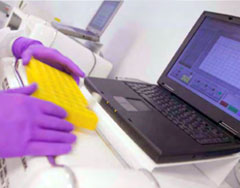 Laboratory information management systems (LIMS) improve access to quality diagnostic testing and provide accurate, timely information for patient care, public health planning and policy decisions. LIMS are recognised as a powerful tool to improve laboratory data management within the laboratories and reporting of data externally. They are widely used by medical laboratories in high-income countries. While some hospital-based microbiology laboratories in developing countries have been equipped by electronic systems to record test ordering, laboratory findings and billing processes, the market for public health LIMS remains underdeveloped.
Laboratory information management systems (LIMS) improve access to quality diagnostic testing and provide accurate, timely information for patient care, public health planning and policy decisions. LIMS are recognised as a powerful tool to improve laboratory data management within the laboratories and reporting of data externally. They are widely used by medical laboratories in high-income countries. While some hospital-based microbiology laboratories in developing countries have been equipped by electronic systems to record test ordering, laboratory findings and billing processes, the market for public health LIMS remains underdeveloped.
Existing LIMS are often expensive, designed for clinical laboratories and do not address some important public health laboratory needs, such as communication with national health information management or surveillance systems. As a result, LIMS have not been deployed in a significant proportion of public health laboratories in developing countries, limiting their capacity to contribute adequately to the surveillance of and response to public health events of international concern such as epidemics.


